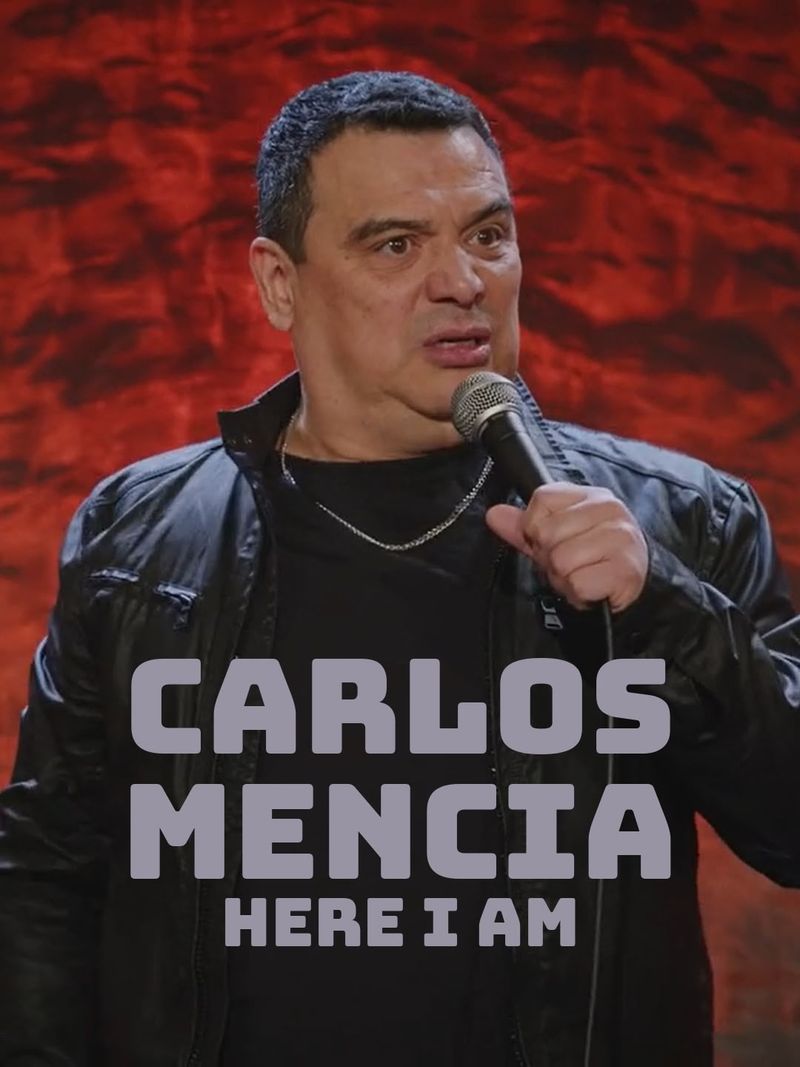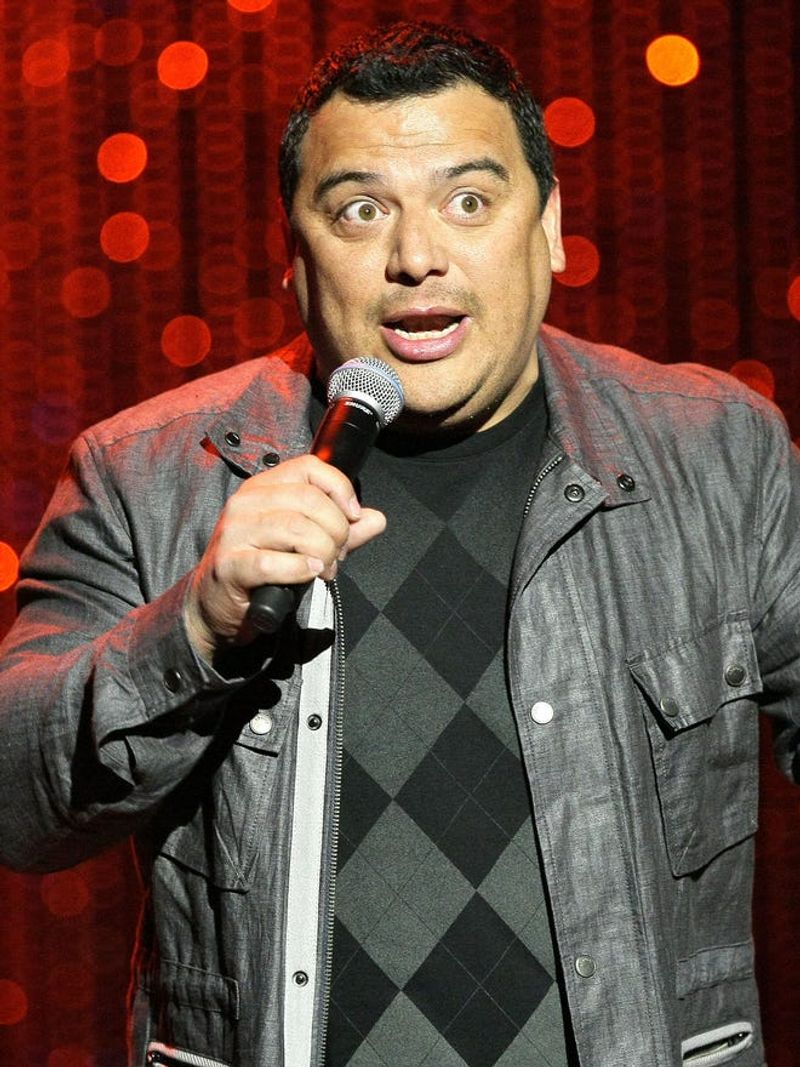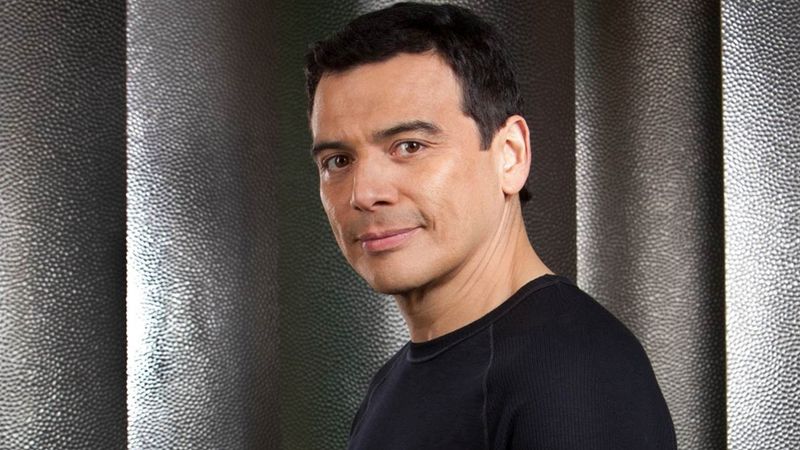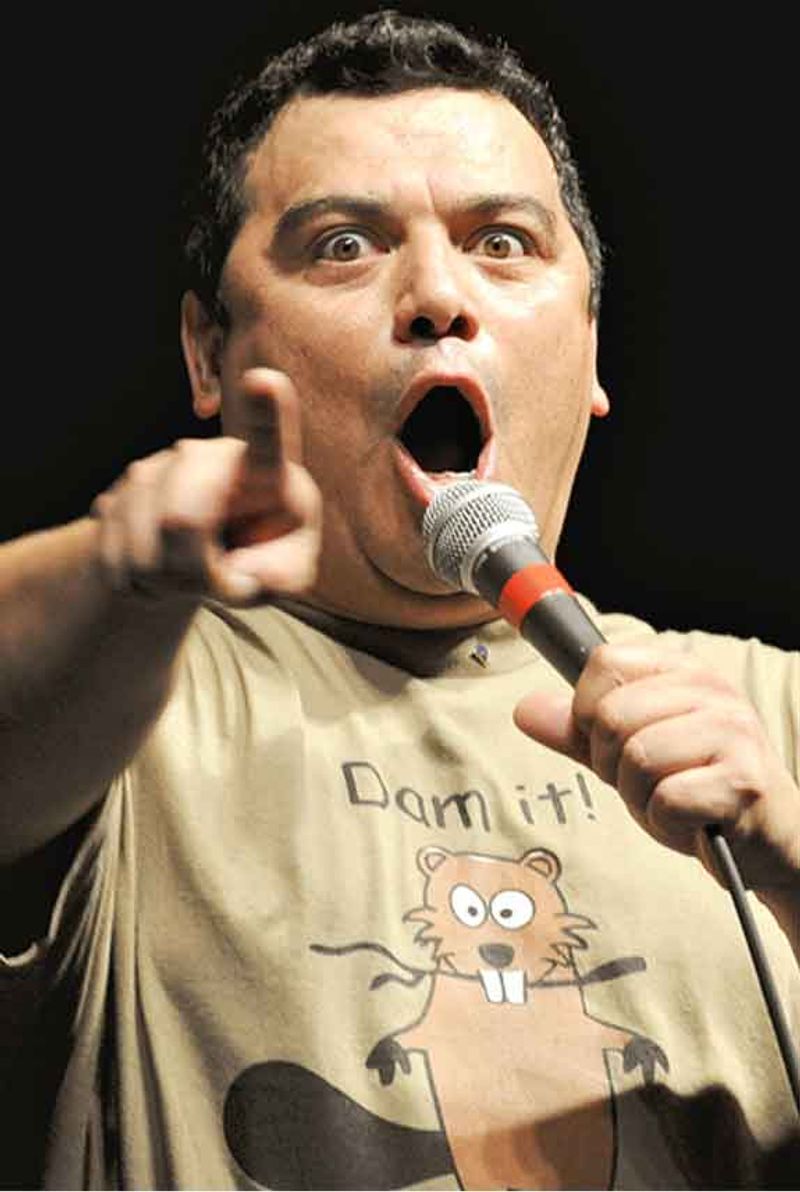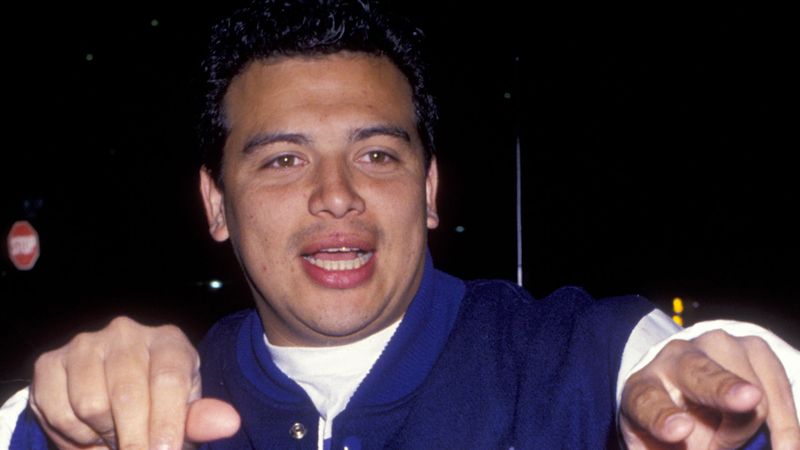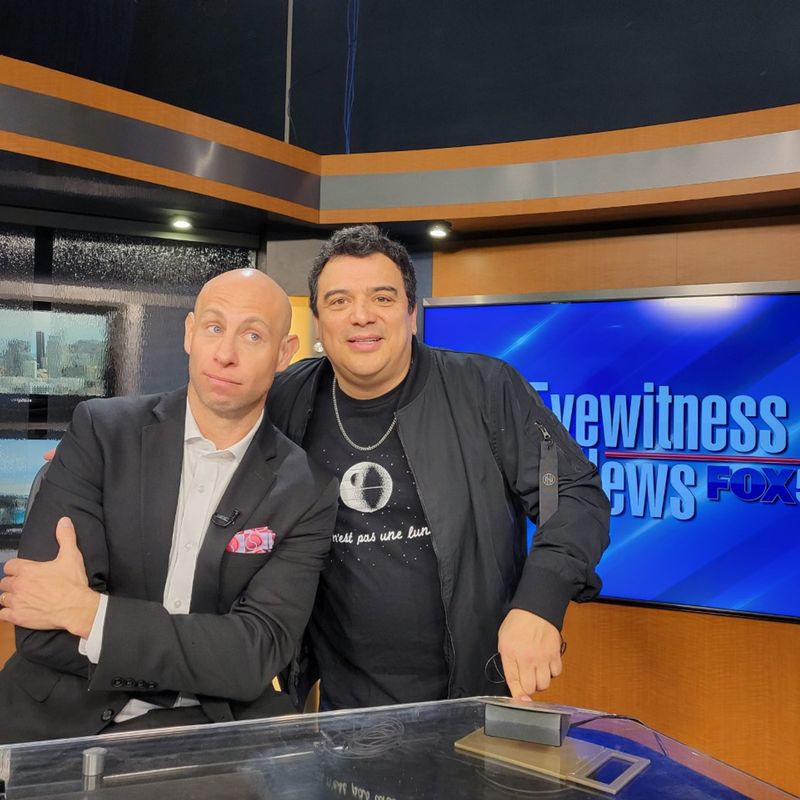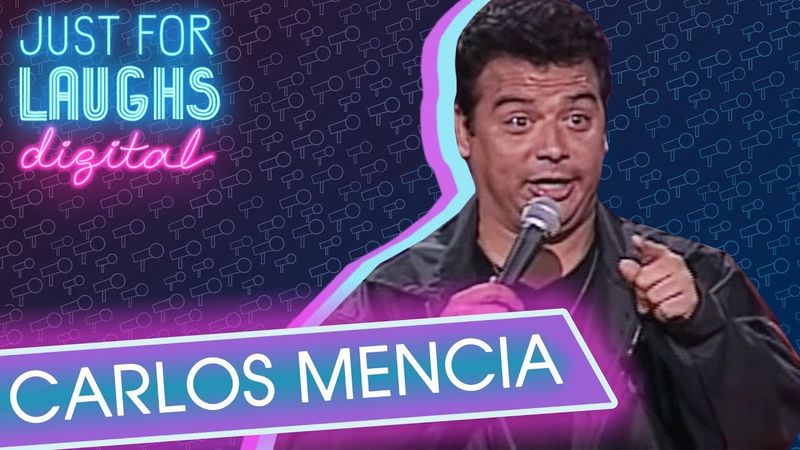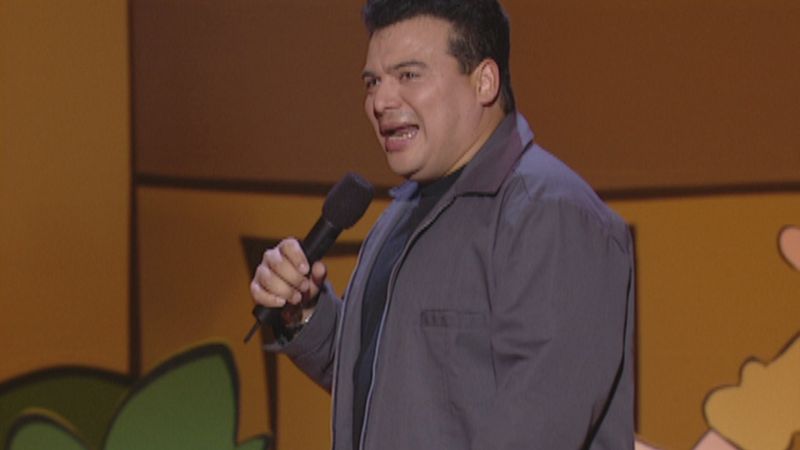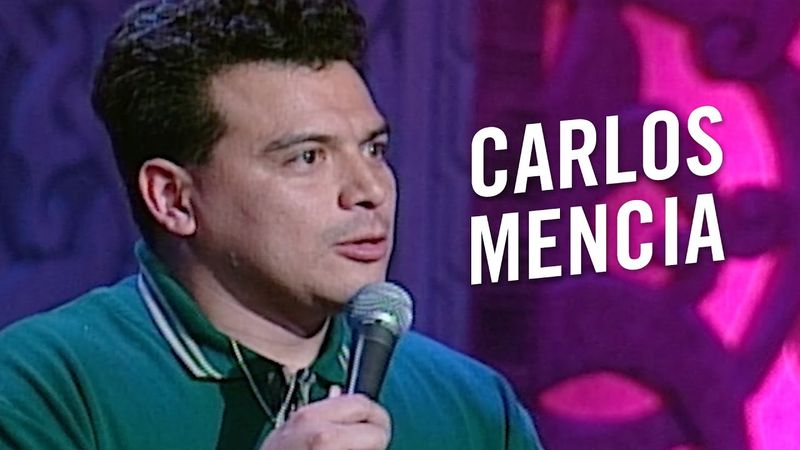Carlos Mencia, known for his fearless approach to comedy, brings a collection of bold, loud, and unapologetically provocative jokes.
These jokes, crafted with Mencia’s unique flair, challenge societal norms and spark laughter by touching on sensitive topics with honesty and humor. Here are 14 such jokes that showcase his comedic genius.
1. Judging at Walmart
Everyone says, “Don’t judge.” Really? I walk into Walmart at 2 a.m. and see a dude in SpongeBob pajamas eating cold chicken wings. I’m judging. We all are. Let’s be honest.
As humans, judging is instinctual, especially when faced with such peculiar sights. It’s these moments that Carlos Mencia thrives on, embracing the shared human experience of silent judgment.
While society urges us to refrain from quick judgments, Mencia highlights the inherent humor in these situations. His comedic lens transforms everyday encounters into relatable, laugh-out-loud moments, reminding us of our shared humanity.
2. The Fast-Paced Society
Americans want everything fast—fast food, fast Wi-Fi, fast shipping. You know what we don’t do fast? Read terms and conditions. That’s how we sold our souls to Apple and didn’t even get a receipt.
Carlos Mencia humorously points out this contradiction, emphasizing how we often skip the fine print, only to unwittingly ‘sell our souls’ to tech giants without a receipt.
This joke cleverly underscores our willingness to prioritize convenience over caution. Mencia’s wit highlights the absurdity of modern life, where speed is valued above all else, except when faced with monotonous legal jargon.
3. The “I’m Not Racist” Clause
You ever notice how people say, “I’m not racist, but…” and then follow it with the most racist thing you’ve ever heard? “I’m not racist, but if they don’t speak English, they should leave.” Sir, your dog speaks better English than you.
He humorously compares their speech to a dog’s, noting that even pets might articulate better. This joke reflects on society’s struggle with inherent biases and the awkwardness of such conversations.
Mencia’s humor deftly exposes the irony in attempting to disguise prejudice with disclaimers. By turning the spotlight on these contradictions, he encourages introspection and laughter simultaneously, providing both entertainment and food for thought.
4. Politicians and Strippers
I don’t get why people are surprised politicians lie. That’s like being surprised when a stripper says, “You’re special.”
In a world where trust in leaders is waning, Mencia’s humor captures the essence of skepticism prevalent in society. His comparison cleverly contrasts the two professions, each known for creating illusions.
By equating political promises with insincere flattery, Mencia invites laughter at the expense of those who manipulate truth. This joke serves as a humorous reminder to maintain a healthy dose of skepticism, challenging us to see beyond deceptive facades.
5. Cultural Quirks
Every culture has weird stuff. Mexicans put lime and chili on everything. White people put raisins in potato salad. One of those is delicious. The other one is a hate crime.
His joke implies that while one is delicious, the other is questionable—bordering on a culinary crime. This playful jab celebrates diversity while poking fun at cultural idiosyncrasies.
Mencia’s humor embraces cultural differences, inviting audiences to laugh at themselves and each other. His jokes foster a sense of community through shared laughter, making cultural exploration both entertaining and insightful.
6. Color Blindness
I met a guy who said, “I don’t see color.” Cool. So when you get pulled over, do you also not see the red and blue lights? Or are you just pretending racism is a Snapchat filter you can turn off?
By juxtaposing racial color blindness with an absurd scenario, Mencia highlights the inadequacy of such claims in addressing real-world problems.
Through laughter, he encourages audiences to reflect on the complexity of race relations. Mencia’s sharp wit challenges the notion that ignoring color solves problems, instead advocating for awareness and understanding as paths to genuine progress.
7. Offense and Wi-Fi
People get offended so fast now. You can’t even make a joke without someone yelling, “That’s problematic!” Meanwhile, I’m like, “Sir, your Wi-Fi password is ‘Freedom69’—you lost the moral high ground.”
His humor reveals the contradiction between moral posturing and personal choices. By highlighting this disparity, Mencia invites laughter at our collective inconsistencies.
Through his comedic lens, Mencia critiques the ease with which people express offense without introspection. His jokes serve as a mirror, reflecting societal quirks and encouraging audiences to laugh at their own contradictions.
8. Space Billionaires vs. Rent
We have billionaires arguing about space travel while people are Venmo-requesting rent from their roommates. “I’ll be on Mars by Tuesday.” Cool, I’ll be at 7-Eleven asking if this hot dog counts as a meal.
His joke paints a vivid picture of contrasting priorities, where some dream of Mars while others grapple with daily expenses.
Through humor, Mencia underscores the absurdity of societal inequality. His jokes challenge audiences to consider the values driving such disparities, making them laugh while reflecting on pressing economic issues.
9. Immigrant Job Myths
Some folks say immigrants are stealing jobs. What jobs? The ones you don’t wanna do? You ever see a guy complain about immigrants while holding a ‘Now Hiring’ sign? No. He’s too busy not applying.
His joke exposes the hypocrisy of blaming immigrants for job shortages while ignoring available opportunities. Through this lens, Mencia advocates for a more nuanced understanding of employment issues.
By addressing misconceptions with humor, Mencia invites audiences to reconsider their perspectives. His jokes foster a more informed dialogue about immigration, challenging stereotypes with wit and laughter.
10. Unimpressed Audience
I once told a joke at a show and a lady stood up and said, “That’s not funny.” I said, “Ma’am, I agree. You’ve been sitting here for 45 minutes and haven’t laughed once. I was gonna ask you for notes after the show.”
His humor captures the vulnerability of performing, where not everyone finds the same jokes funny.
Through laughter, Mencia reminds audiences that comedy is a personal experience. His jokes resonate with anyone who’s faced skepticism, turning awkward moments into shared joy.
11. Hell in a Handbasket
You ever hear people say, “This country is going to hell in a handbasket”? What does that even mean? Who’s carrying the basket? And why is hell so organized now?
His joke highlights the absurdity of outdated expressions, inviting laughter at their literal interpretations.
Through this whimsical lens, Mencia challenges linguistic conventions, encouraging audiences to rethink common phrases. His humor transforms everyday language into a source of amusement, offering a fresh perspective on familiar expressions.
12. Soft Kids vs. Tough Upbringing
People say, “Kids today are soft.” No, they’re just not getting beat with flip-flops and extension cords like we did. That’s not toughness—that’s trauma with a tan line.
His humor captures generational shifts in parenting styles, inviting laughter at their extremes.
Through this joke, Mencia encourages reflection on past experiences. His comedy fosters understanding across generations, highlighting both the humor and complexity of evolving family dynamics.
13. Traditional Marriage
I saw a guy say “I believe in traditional marriage.” Like what? The one where the wife couldn’t vote and the husband had a secret family in another state? That tradition?
His humor highlights the contradictions in romanticizing the past, where gender roles were rigid and secrets abounded.
Through laughter, Mencia invites audiences to rethink their views on tradition. His jokes challenge nostalgia, encouraging a more inclusive understanding of relationships.
14. Language and Little People
I once got in trouble for saying the word “midget.” Okay, but explain to me how “little person” is better. I’m 5’6”—I want in on that community if that’s the rule now.
His joke underscores the complexity of political correctness, inviting laughter at the shifting landscape of acceptable terms.
Through humor, Mencia encourages dialogue about language and identity. His jokes highlight the nuances of communication, fostering a more nuanced understanding of sensitivity.

